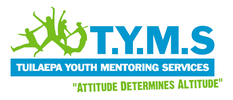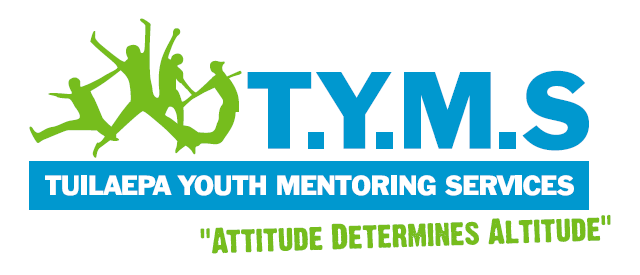|
Author: Koleta Savaii The family is the most important institution in children’s lives.
For many of our Pacific children, the family is where language, values, and cultural and religious beliefs are taught and nurtured. A strong family is one where members can depend on each other, where people are treated well, where values are shared and respected and where there is financial security. Just like a well-built fale, a strong family can weather even the greatest storm. Sadly, not all our Pacific families are weathering the storm. A shift in New Zealand’s socio-economic environment has contributed to Pacific communities suffering from cultural erosion, social fragmentation and an increasing loss of identity. This has instigated changes in Pacific family structures and dynamics, including increases in de facto relationships, shifts towards single parenting, and changes in traditional attitudes towards care for the elderly and the young. These changes have undermined our family units and the ways in which family members relate to each other. Many Pacific families are underpinned by cultural values of fa’aaloalo (respect), va fealoao’i (relational boundaries), tautua (service), and alofa (love). When these values are lost, the family can become a place of suffering and dysfunction, rather than sites that nurture strong and vibrant families. When children and young people have strong and healthy relationships with their families, their health and wellbeing increases and they are less likely to be involved in delinquent behaviours. Children are believed to be a tofi (inheritance) from God. The Christian bible teaches us to ‘Train up a child in the way he should go; and when he is old, he will not depart from it’ -Proverbs 22:6. Samoa also has a well-known saying “O le tama a le tagata e fafaga i upu ma tala, a o le tama a le manu e fafaga i fuga o laau” – The offspring of men are fed with words but the offspring of birds are fed with seeds. In the EFKS (Congregational Christian Church of Samoa) tradition, when a child is baptised, all who witness this sacred ceremony (the family and the church community) are endowed with the responsibility of raising the baptised child in the ways of the church and fa’aSamoa (Samoan way of life). Hence the saying: ‘It takes a village to raise a child’. Pacific peoples have a holistic view of the world. This worldview is comprised of the social (people), the physical (land and resources), and thespiritual (God the creator), where individual and collective wellbeing is a consequence of a balance and harmony between these interrelated domains. This holistic worldview is encapsulated in the well-known Fonofale model of Pacific health and wellbeing. According to the Fonofale model, the Pacific self is envisioned as a fale (a Samoan house;right). The fa’avae (foundation) is central to the Samoan fale; a solid foundation ensures the fale will withstand any changes in the weather. Likewise, Pacific wellbeing as envisioned by the Fonofale model, requires a strong, healthy and vibrant family. It is well-established that when children and young people have strong and healthy relationships with their families, their health and wellbeing increases, and they are also less likely to be involved in delinquent behaviours. Good family relationships have spillover effects to other areas of the child’s life, including their education. Significant research in the education sector spanning the past 25 years has demonstrated that family involvement is critical to the educational success of children . Involvement in their children’s educational journey gives parents confidence, as they are able to see themselves as more capable of assisting educators or youth service providers who are working with their children. Inclusion makes parents and families feel valued and appreciated. Inclusion also sees parents as equal partners in their children’s education, and this gives them the confidence to assist with their children’s work and school projects that are to be completed outside of school. Family inclusion in education also sends a message to young people that their school values their parents’ contribution and involvement. All children want to feel pride in their families, and that pride will probably influence how the child feels about him/herself. When a Pacific individual is successful, whether it be in education, sports, or employment, families and communities celebrate together. Success for one individual is linked to family and community wellbeing; accordingly, most activities are carried out with the goal of “contributing to the family good, and not for personal gain”. As such, it is crucial that educators and service providers working with Pacific peoples ascertain the aspirations and expectations of Pacific families, so that their goals are aligned with those of Pacific families, ensuring maximum positive outcomes for the young person. This means a working together in partnership with families, sharing the responsibilities and decisions on the young person’s educational journey from start to finish. At TYMS, we always make a solemn promise to families that we will look after their children as if they were our own. As a provider of programmes aimed at addressing the underlying needs of young people through academic mentoring addressing education needs, values, life skills, physical fitness and cultural identity, TYMS works together with young people’s family and whanau, with the child at the centre. In the Samoan culture, when a precious gift such as an ‘ie toga (a precious, finely woven mat that is a most important item of cultural value in Samoa) is handed over, it is important that the receiver honour the gift. When families hand us their child, they are handing us their most precious gift. It is up to us to look after that gift, and we always make a solemn promise that we will look after their children as if they were our own.
0 Comments
Your comment will be posted after it is approved.
Leave a Reply. |
Categories
All
Archives
June 2018
|
What Our Clients Are Saying
|
Contact Us |



 RSS Feed
RSS Feed
